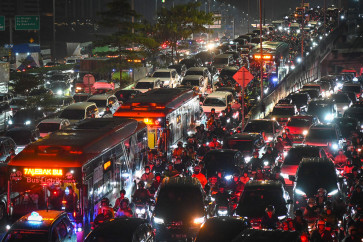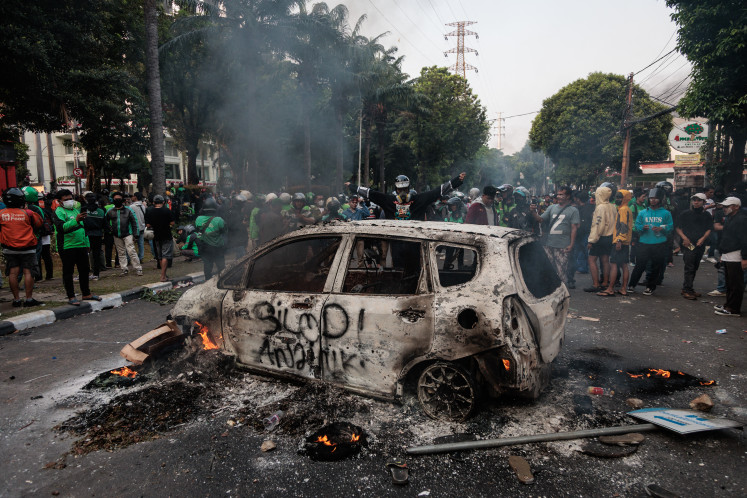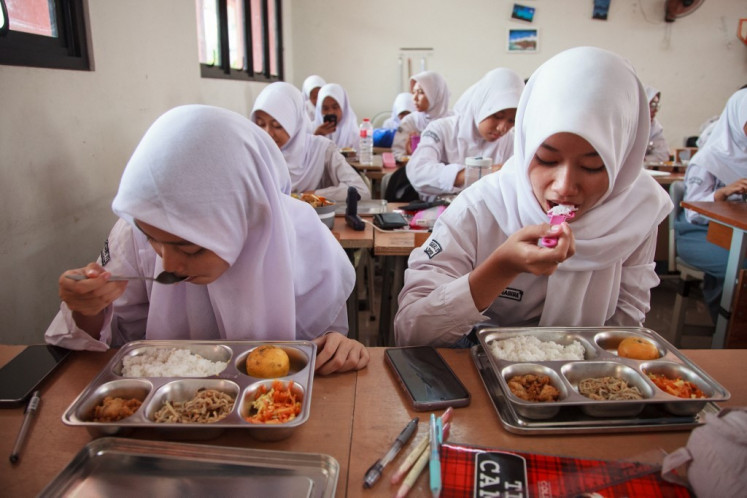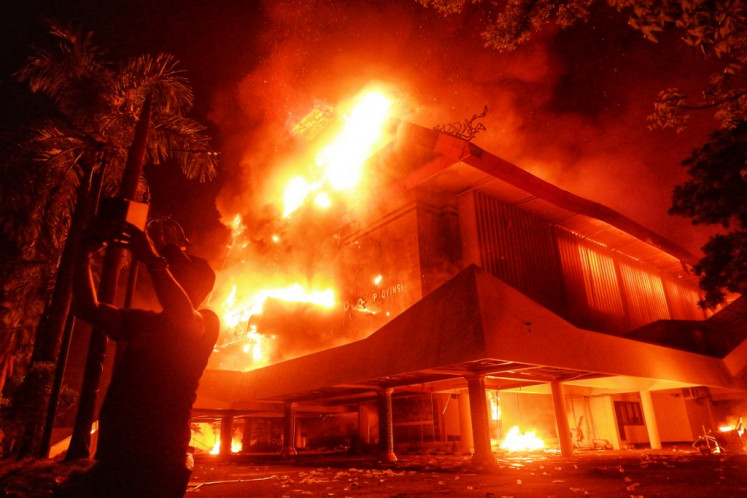Popular Reads
Top Results
Can't find what you're looking for?
View all search resultsPopular Reads
Top Results
Can't find what you're looking for?
View all search resultsPreach not tolerance but mutual respect instead
Tolerance today is an important but an overused buzzword
Change text size
Gift Premium Articles
to Anyone
T
olerance today is an important but an overused buzzword. As nations struggle to come to grips with tensions arising from cultural and religious differences, tolerance is being widely preached, particularly in interfaith dialogues, amid skepticism about its effectiveness.
This is no more so in the United States and Indonesia. The first is afflicted by the rise of “Islamophobia” and the later by the growing intolerance among its Muslim majority.
Preaching mutual respect rather than tolerance has a much better chance of succeeding in promoting religious harmony in societies as diverse as these two countries.
The trouble is that a thin line divides tolerance and intolerance and people just easily switch between the two over the flimsiest of reasons.
An Indonesian scholar friend says the difference between tolerance and intolerance could be a matter of one church.
Most Muslims in Jakarta have no problem having a church in their neighborhood but they will object to a second one, even if it belongs to a different denomination, The predominantly Muslim neighborhood switches from tolerant to intolerant over one church.
In the United States, the difference can be a matter of “one mile or less”. Most Americans say they have no problems with Muslims building mosques, but drew the line last year when they heard about the plan to have an Islamic center near the Ground Zero in Manhattan, calling it insensitive to the victims of the 2001 terrorist attacks by Muslim suicide hijackers.
Americans switched from tolerant to intolerant over the choice of a location of a new mosque. Move the center site a mile or less away, Americans will become tolerant again.
The Merriem-Webster online dictionary defines tolerance as “a sympathy or indulgence for beliefs and practices differing or in conflict with one’s own”. It implies acceptance of the presence of people with different beliefs and cultures, but it does not necessarily advocate respect, which is one (long) step
further.
Another problem with tolerance is that it is judgmental, implying one’s superiority. This also explains why people easily switch between tolerance and intolerance. I am better than you, but I accept your presence nevertheless in the name of tolerance, so the sentiment goes. The moment I feel threatened for whatever reason, I will no longer tolerate you.
Interfaith dialogues that are based on tolerance are therefore disingenuous at best because the religious leaders taking part believe in the superiority of their faiths.
The more they preach about tolerance when they address their congregations — whether Muslims, Christians or people of any other religion — the more seeds of intolerance they are planting in their communities as they inevitably must emphasize the supremacy of their religion.
No wonder there is so much skepticism about interfaith dialogues, even among participants, in promoting better relations and understanding. Instead, whether in the US or Indonesia, we are seeing societies tolerating intolerance growing in their midst.
Indonesia, whose government counts on holding interfaith dialogues among its soft power foreign policy, provides the best illustration. While touting intensive dialogues between religious leaders, the nation has failed to stem the rise of radicalism among its Muslim population.
The near silence of the Muslim majority to recent violent attacks on followers of the Ahmadiyah sect and Christian churches has raised serious questions about the value of these dialogues involving leaders of the different faiths.
Preaching mutual respect on the other hand would carry a stronger force as it puts everyone on the same level playing field. There are no majority-minority or strong-weak divisions that tolerance implies when you advocate mutual respect.
But is it reasonable to expect religious leaders to talk about mutual respect? The answer is probably not. The task of a priest or ulema first and foremost is to sell the superiority of their faith.
Preaching mutual respect carries the risk of being seen as preaching equality between all religions. Many leaders who go the interfaith dialogues do not necessarily sing the same tune when they return to their flocks even as they preach tolerance.
Preaching mutual respect is not really all that contradictory to religious teaching, at least if we go by two popular injunctions in Islam and in Christianity.
Surah 109 of the Koran ends with the verse “Lakum dinukum waliyadin” (To you, your religion, and to me, my religion). The second commandment in Christianity says “Love thy neighbor as thyself”.
The first one is an instruction to non-Muslims that their faith shall be respected, but Muslims in return expect their faith too shall be respected.
The second tells Christians to love others, even their enemies, which include people of different faiths. The first one talks about mutual respect, the second one goes further by invoking love.
These are two profound instructions, in Christianity and Islam, about how one has to deal with people of different faiths. They are a far cry from the hatred, implicit or explicit, or even violence we are hearing being preached nowadays by some religious leaders. And they go far beyond the tolerance that is now being widely preached.
If we can’t expect religious leaders to preach mutual respect, politicians are at greater liberty to take such initiatives. Politicians typically pander to popular sentiments, but one or two have firmly stood up to religious freedom and went beyond tolerance in preaching mutual respects, elevating themselves to true statesmen.
New York Mayor Michael Bloomberg is one rare example. In response to the controversial planned Islamic center in Manhattan last year, Bloomberg, the grandson of a Jewish immigrant, said: “We would betray our values — and play into our enemies’ hands — if we were to treat Muslims differently than anyone else. In fact, to cave to popular sentiment would be to hand a victory to the terrorists — and we should not stand for that.”
Sadly, we have not heard anyone in positions of power in Indonesia rising to the challenge when religious minorities are being attacked, harassed, and deprived of their rights.
We could do with a few more leaders like Bloomberg to preach mutual respect between people of different religions. The world would be a far better place to live in.
The writer is a fellow at the East West Center in Washington, D.C. and a senior editor of The Jakarta Post.










